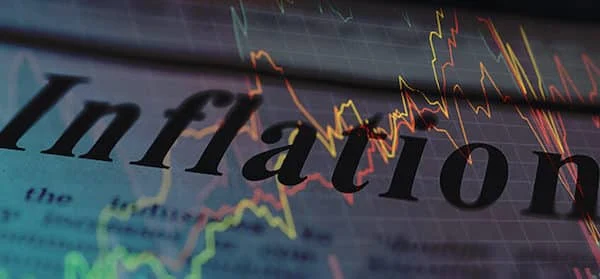Impact of the Inflation on Personal Finance
When the general level of prices of goods and services is increased it is known
as Inflation. The word inflation means an increase in the price of goods and
services. It decreases the purchasing power of the public.
This impacts the personal finances of a
common person.
It decreases the ability to complete basic necessities like food and lifestyle
and also affects long-term savings as well as retirement plans.
The impact of inflation in different ways
a) Reduce purchasing power
The very first and main impact of inflation on personal finance is that it decreases the purchasing power of a person.If a person used to buy more goods, now they can only buy fewer for the same amount of money.
That's how inflation occurs.
b) Wages
In wages, basically, two different conditions occur.If the value of wages increases as inflation increases, then the survival of workers is possible.
Meanwhile, if, after the inflation, wages are at the same place, then it's difficult for them to survive and maintain their living standards.
c) Spending and budgeting
Inflation can affect spending and budgeting. To make a balance in the
budget, some necessities could be avoided. It'll be useful for maintaining the
budget to decrease extra money.
Now the question arises: how do we overcome inflation?
To overcome inflation, there are two things needed: monetary and fiscal
policies.
First of all, it's important to know what radical and monetary policies
are.
Monetary policy
It is a collection of actions to control a nation's overall money supply as well as economic growth.Objectives of monetary policy
Monetary policy has four objectives that play a vital role in maintaining the economy.1) Control inflation
The primary objective of monetary policy is to keep inflation at a manageable level.2) Manage employment.
It is very crucial to increase employment and decrease unemployment at the same time.3) Stable currency
Make sure the national currency is stable.4) Promote economic growth.
Promote the economy so that it can grow.Fiscal policy
It is the spending of taxes to influence the economy, and that is used by the government.
Monetary policies
Increased interest rates
central banks should make policies where borrowing of money is difficult than
savings. It'll help to reduce inflation.
Open market operations
Central banks should sell government bonds so that they can help reduce inflation.Fiscal policies
Increase taxes
An increase in texts can decrease consumption, and it'll help bring inflation
lower.
Objectives of fiscal policy
1) Employment
Reduce the rate of unemployment by providing opportunities to a new generation for jobs in different sectors.2) Economic growth
Increase investment and charge a little bit more taxes to boost economic growth.3) Price stability
Keep stable prices to control inflation.4) Public services
Provide services to the public, like healthcare and education, which are their basic needs.Reduce government spending.
If the expenditures of the government are reduced, Then the impact of this will be on the overall economy, as it can ease the reduction of inflation.These are the steps that are necessary to be taken whenever inflation
occurs. It is always challenging for any nation to overcome a disease like
inflation, but it could be handled with the help of given instructions.





0 Comments